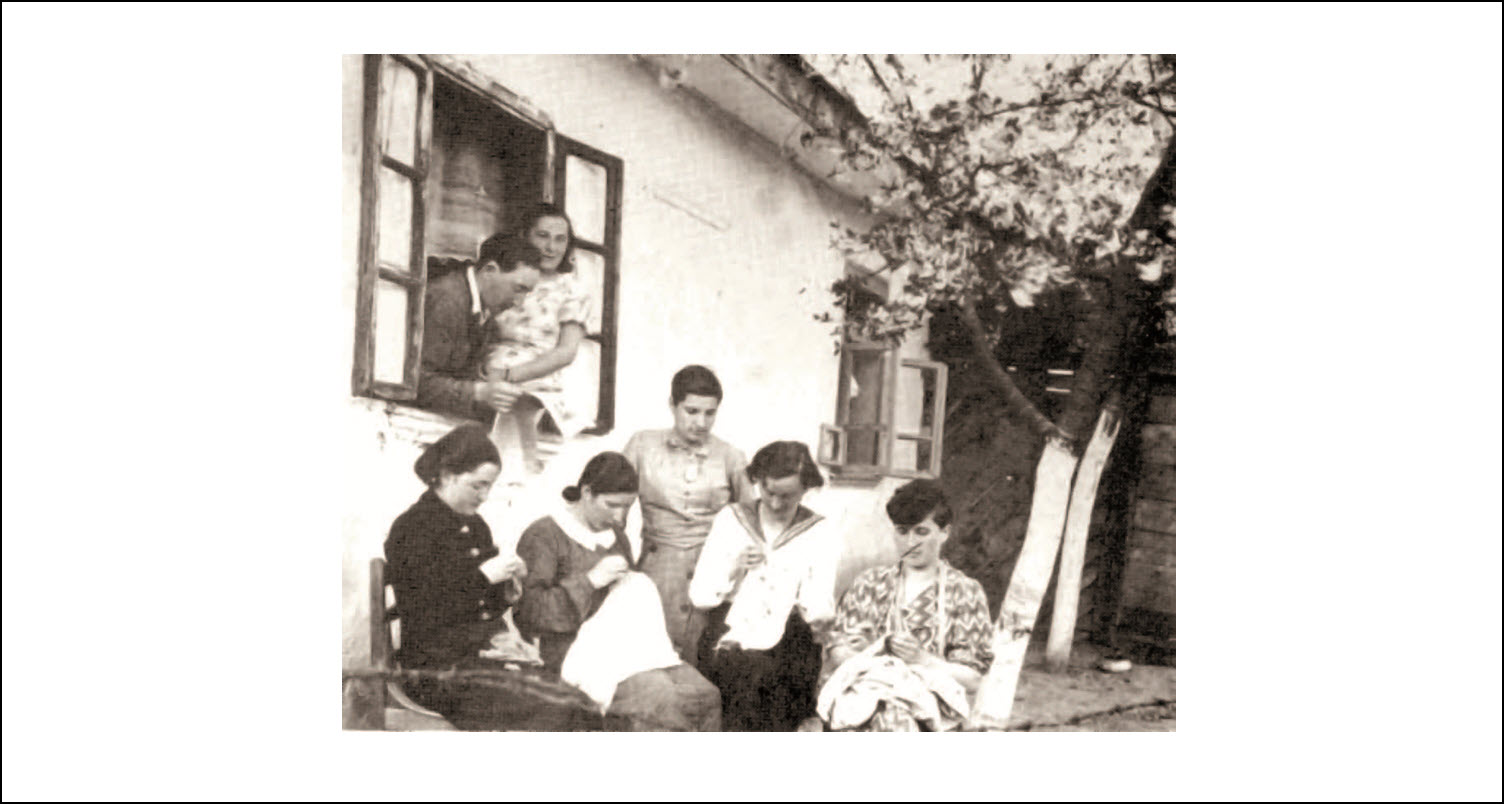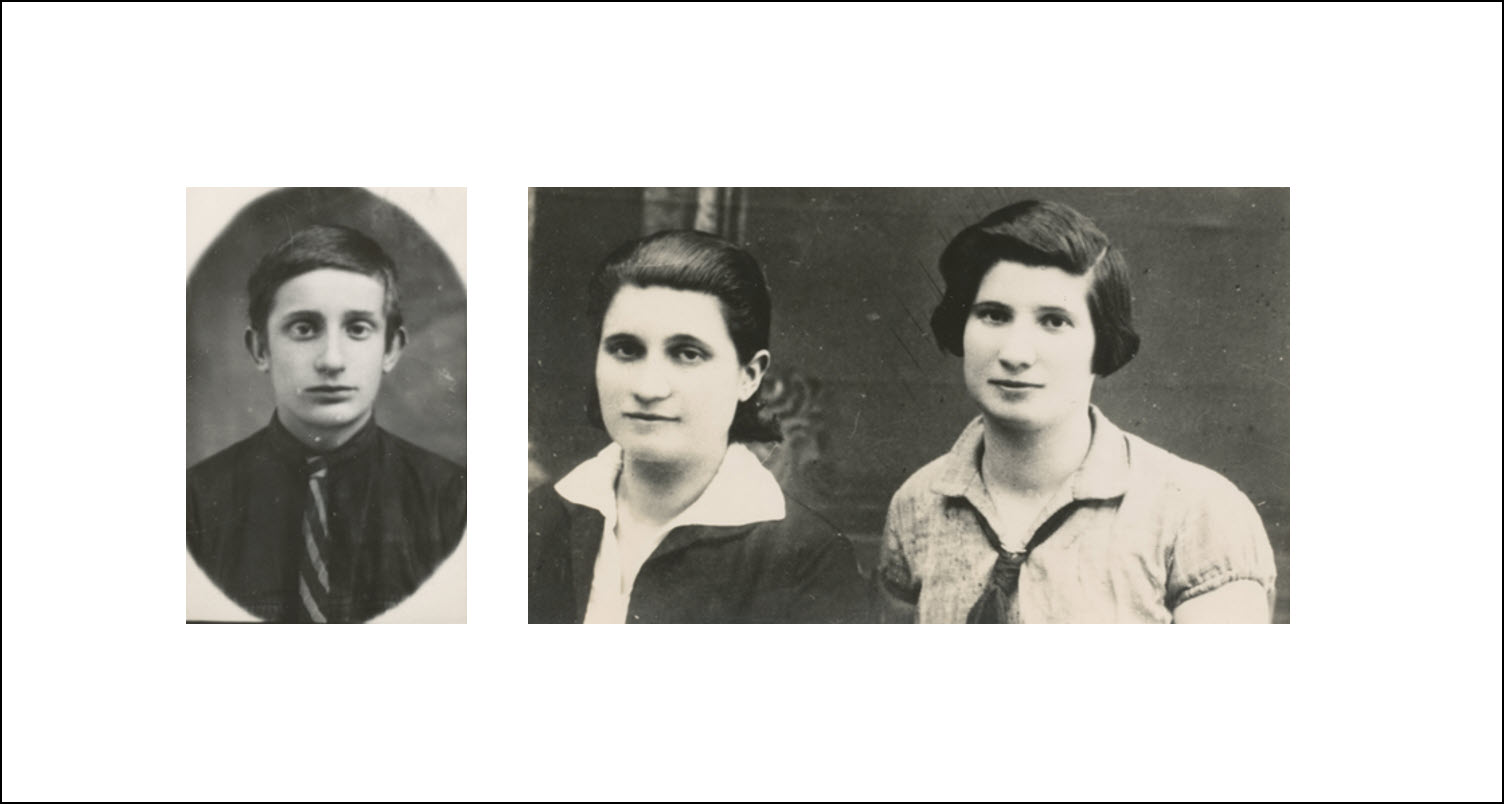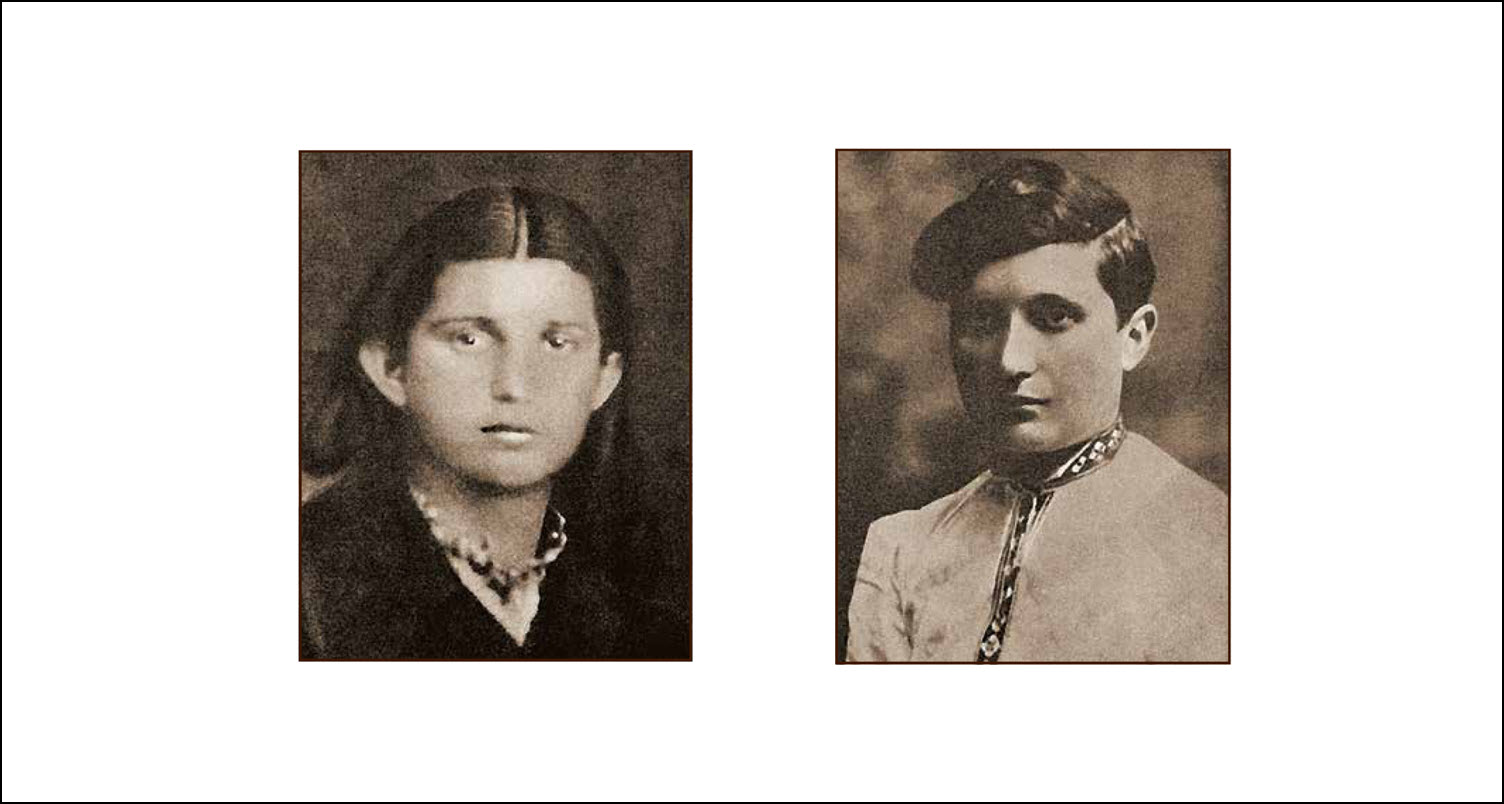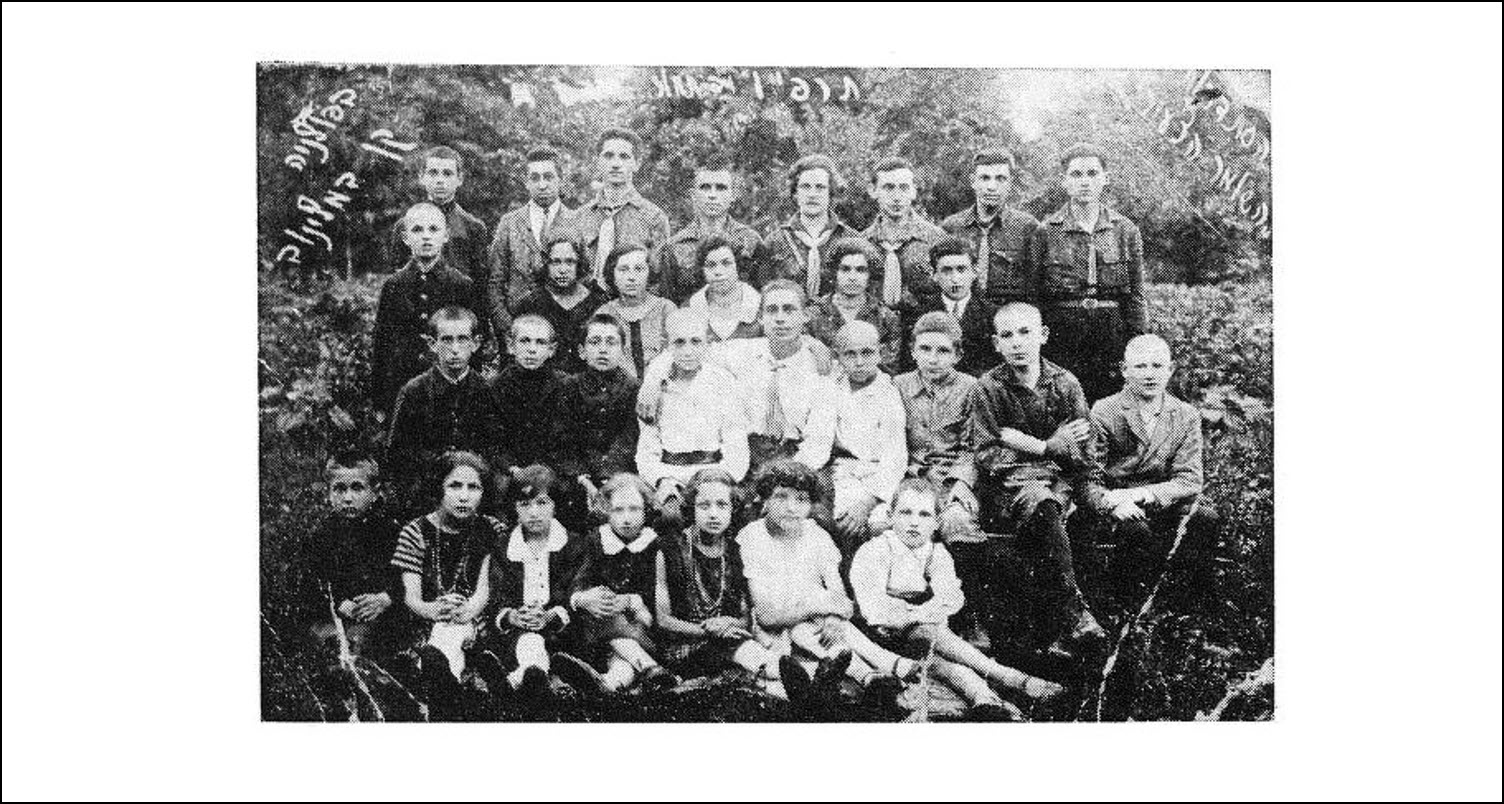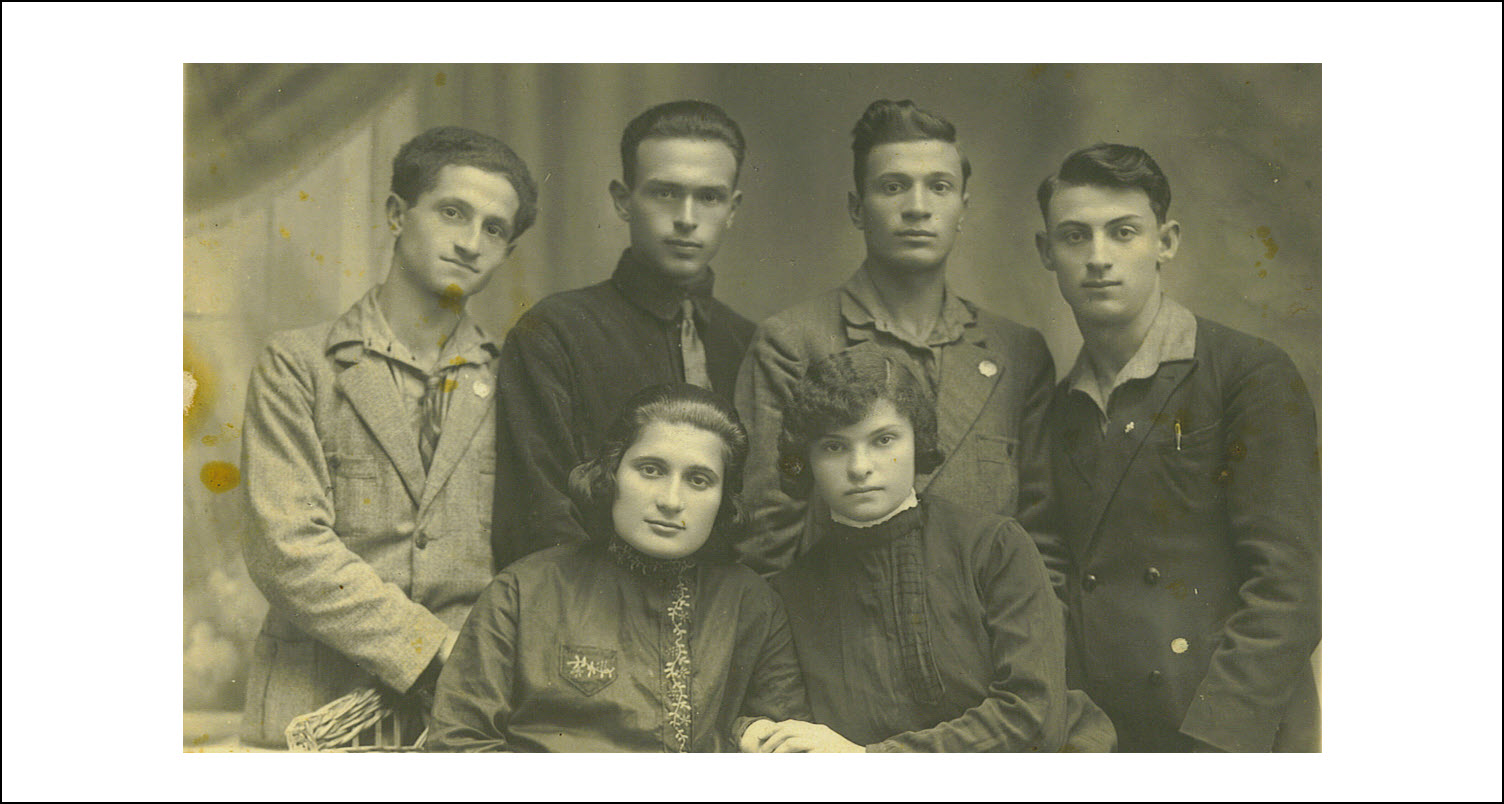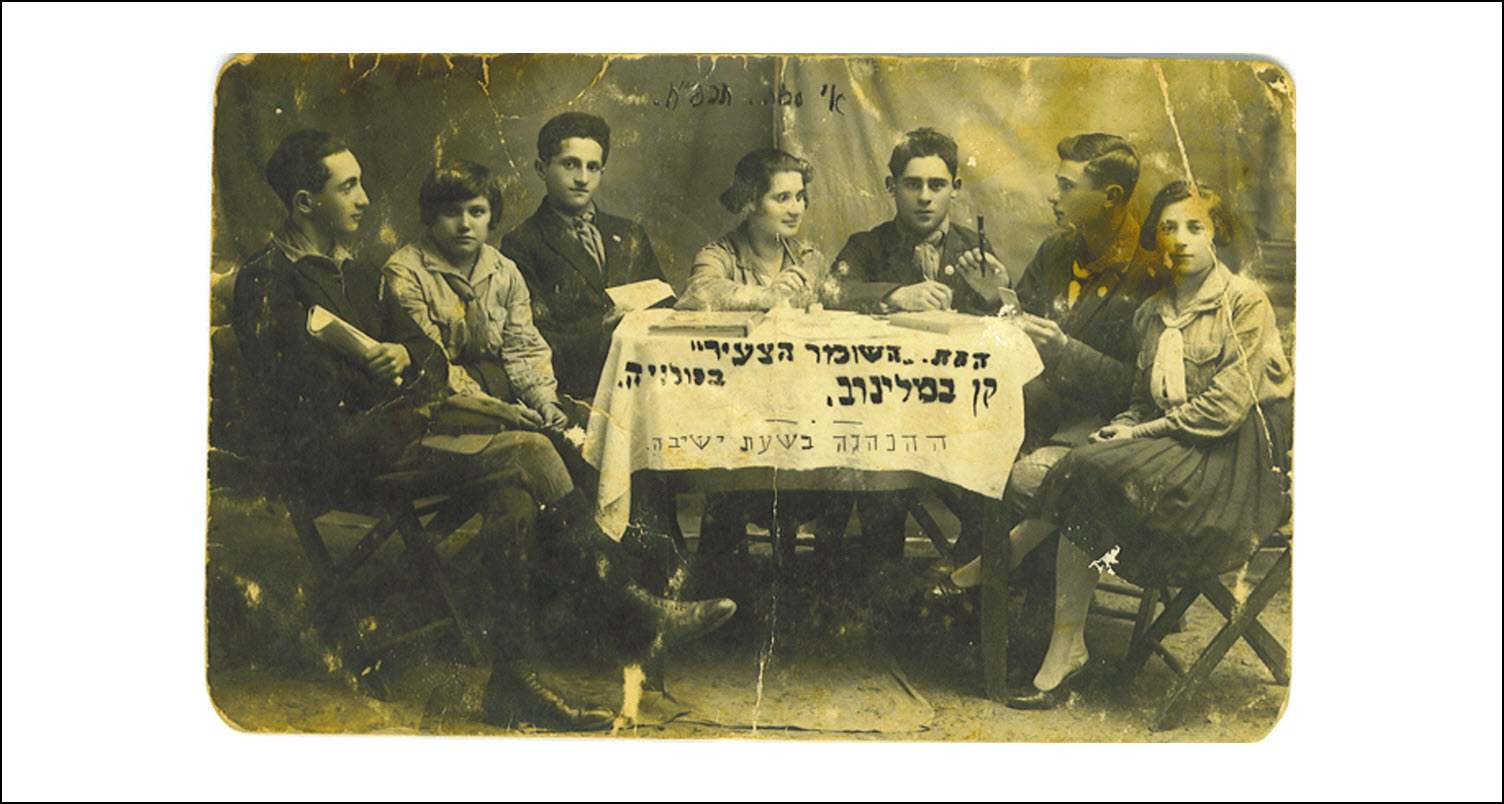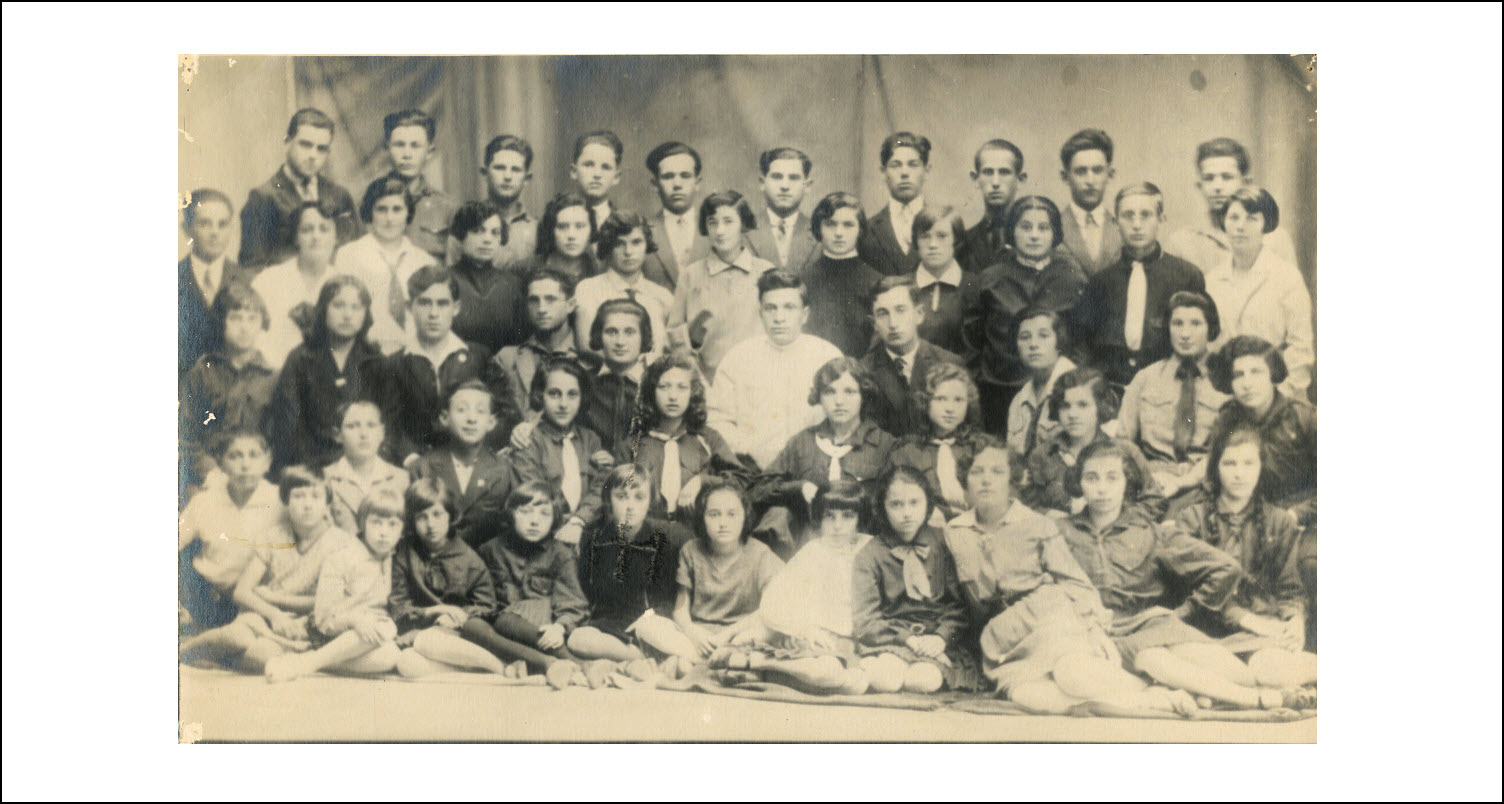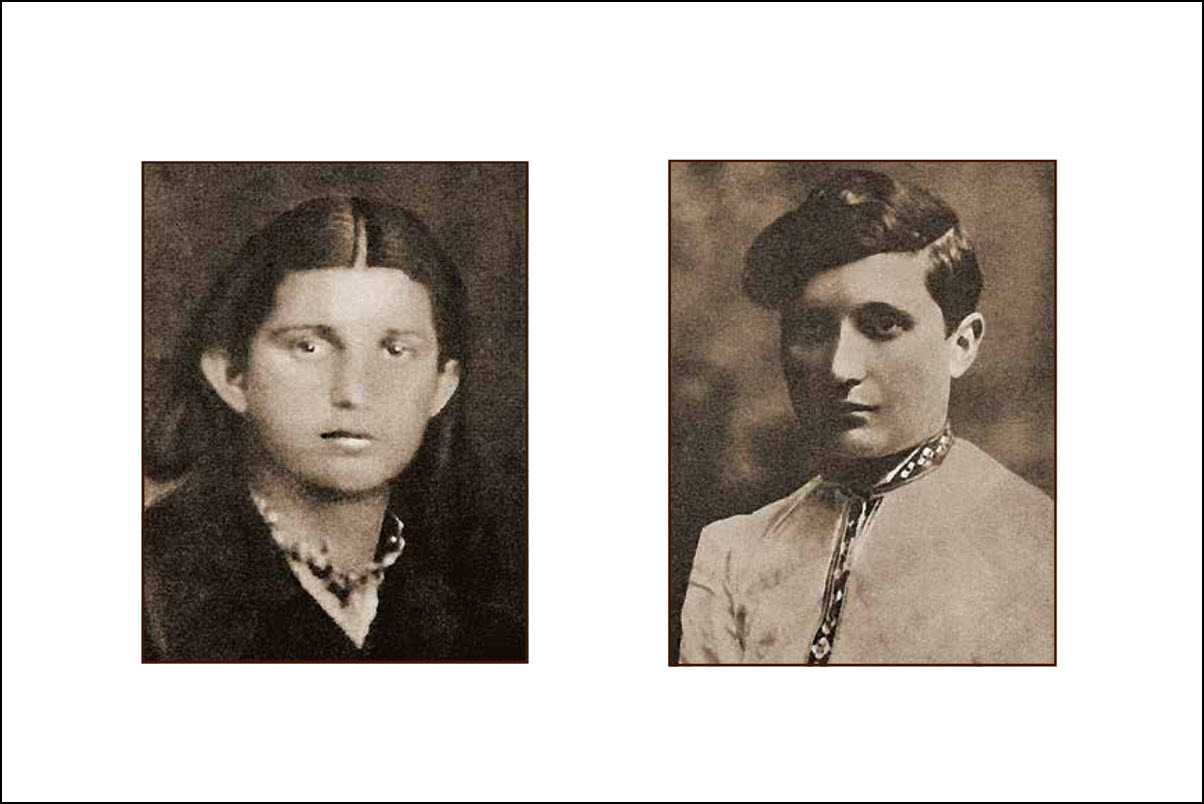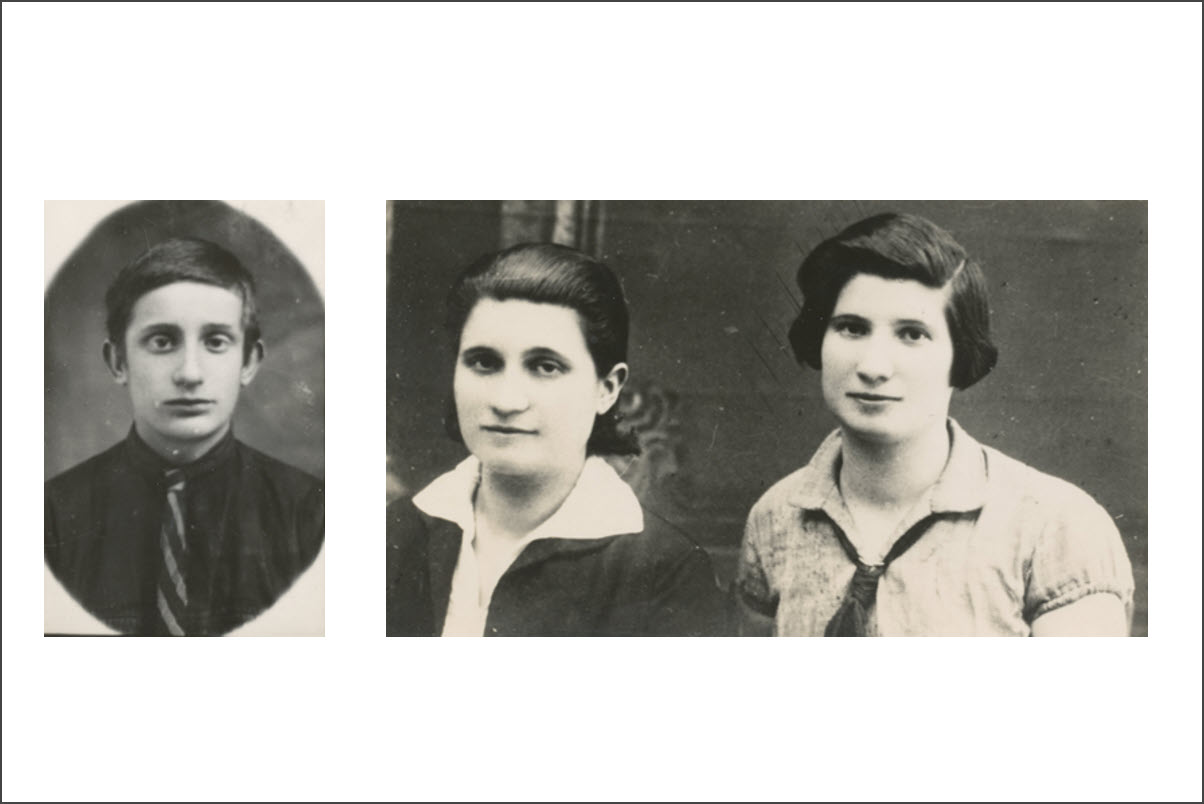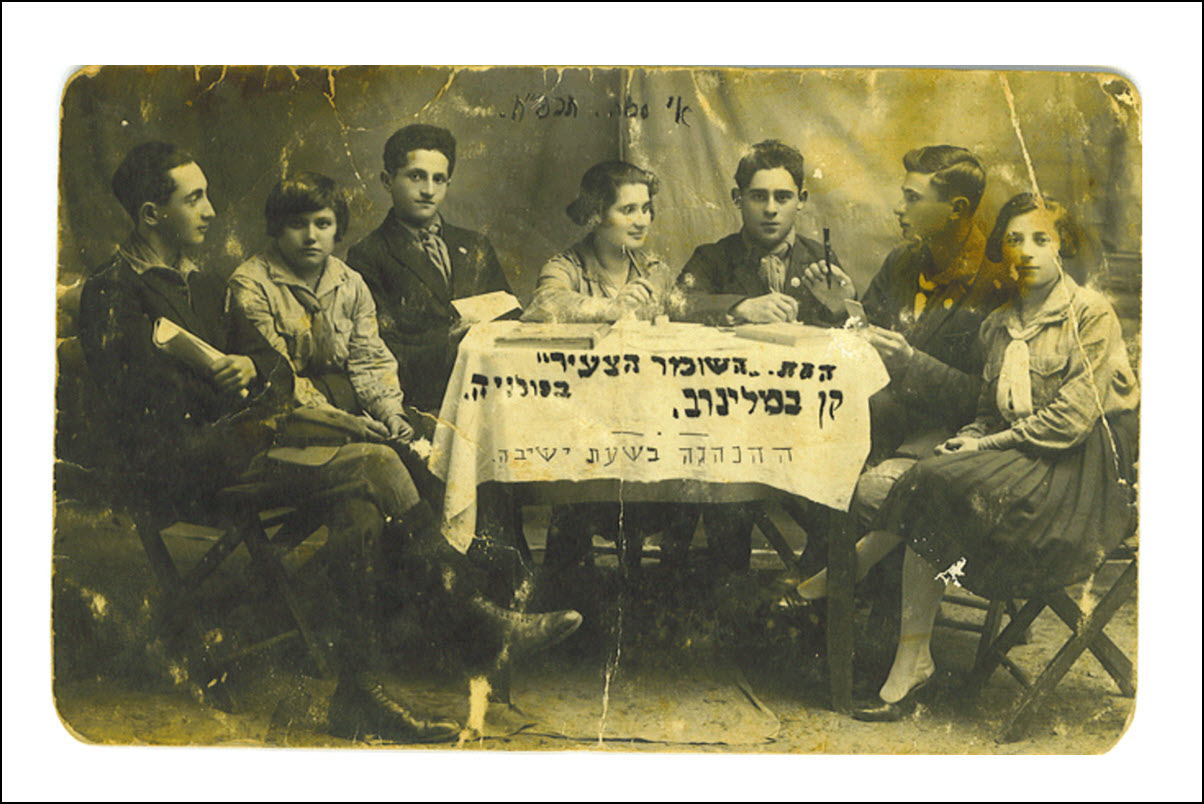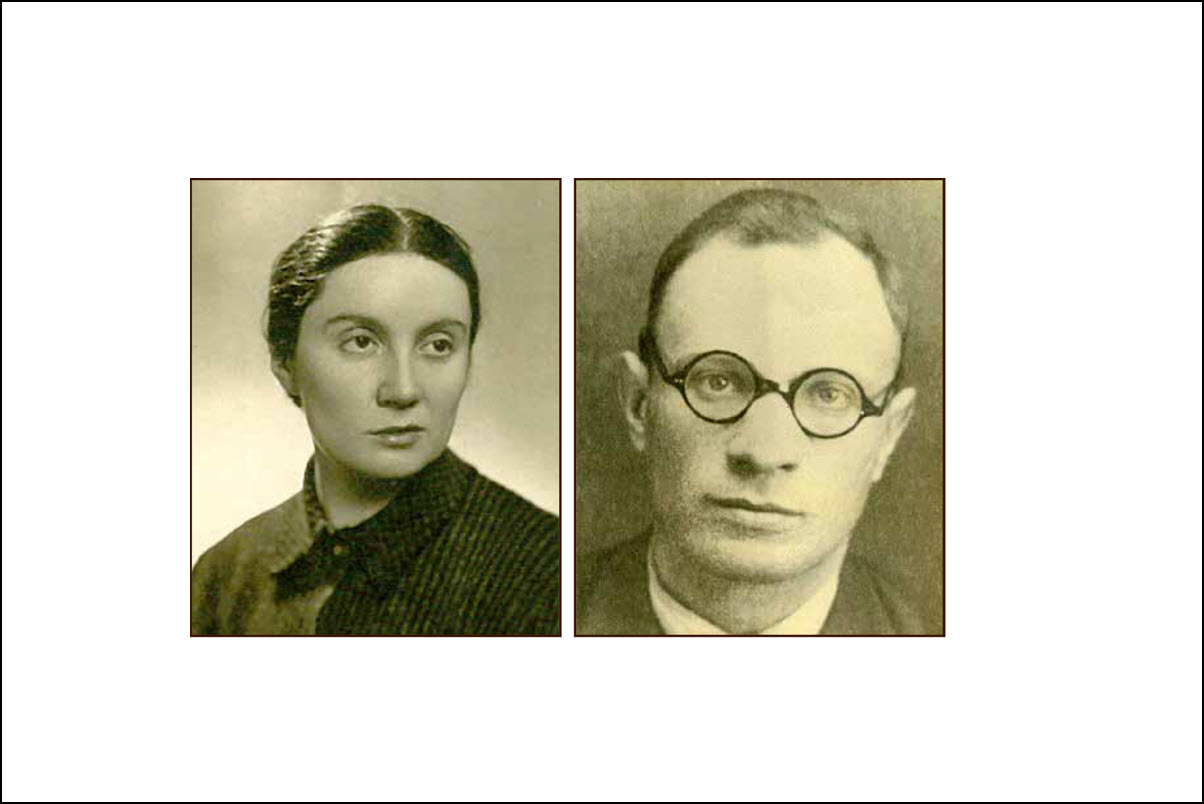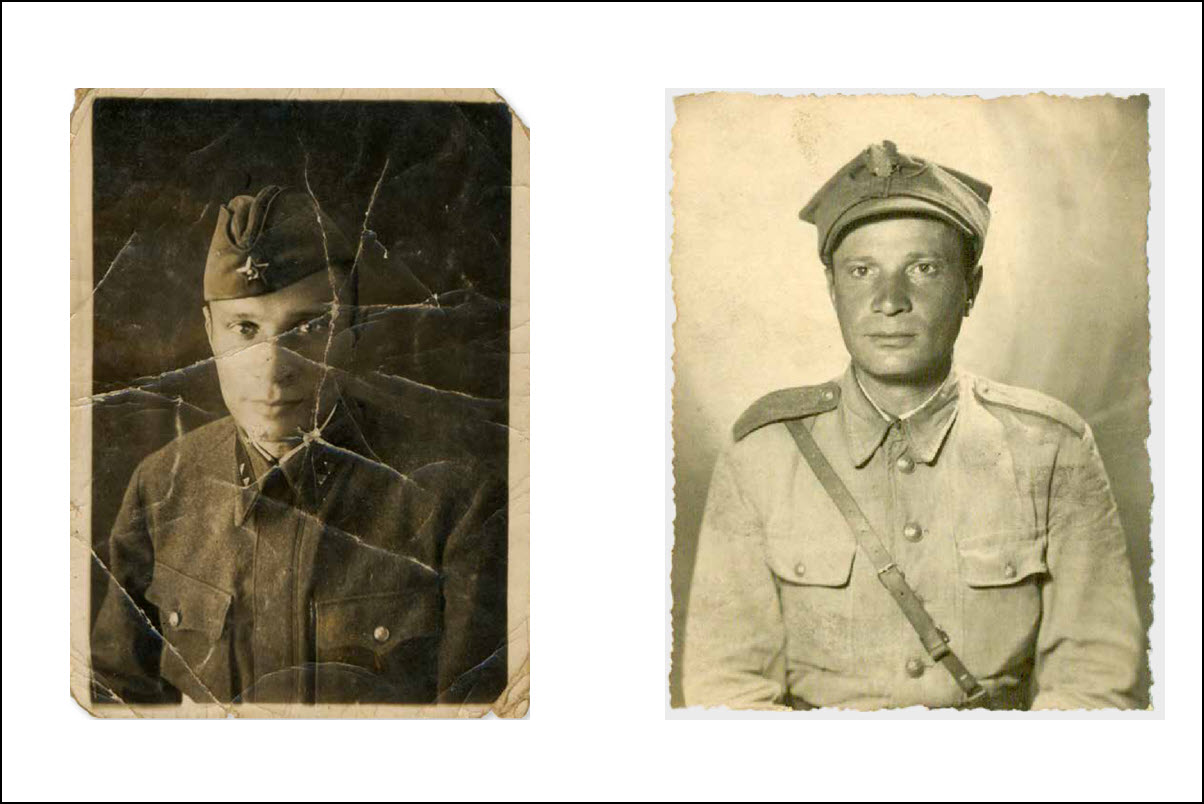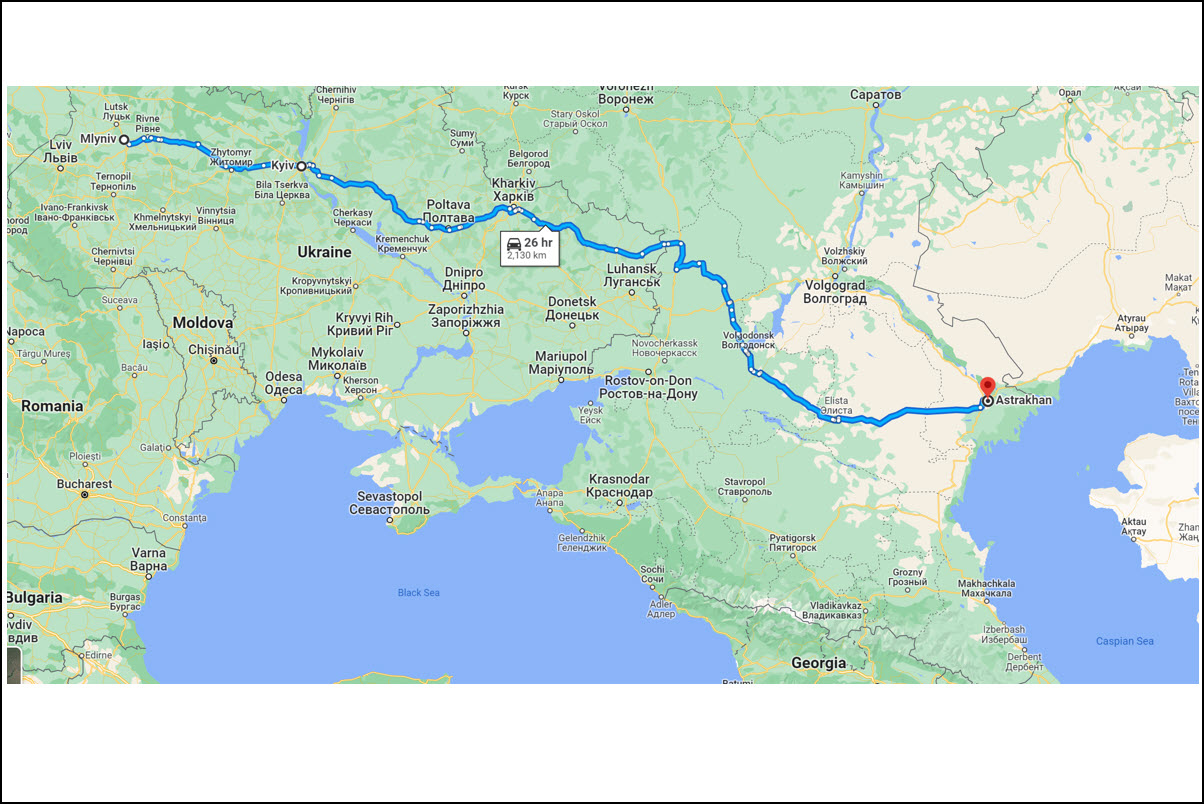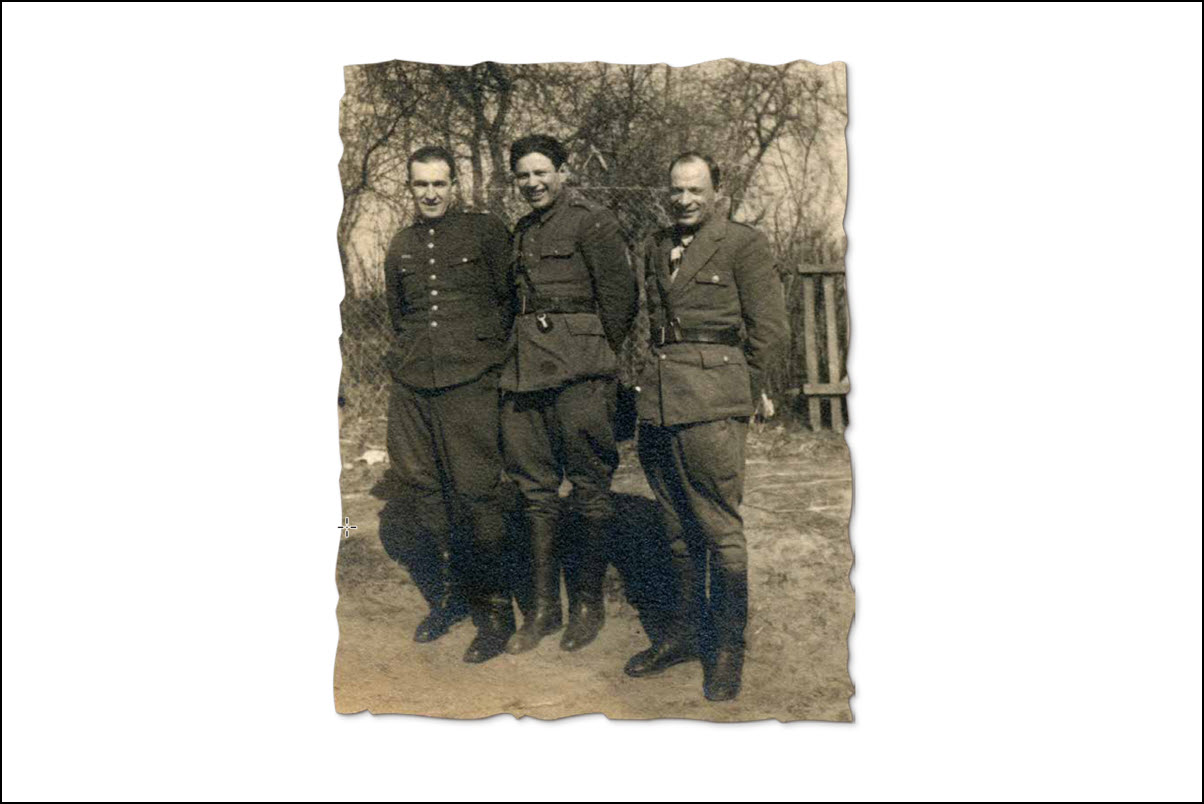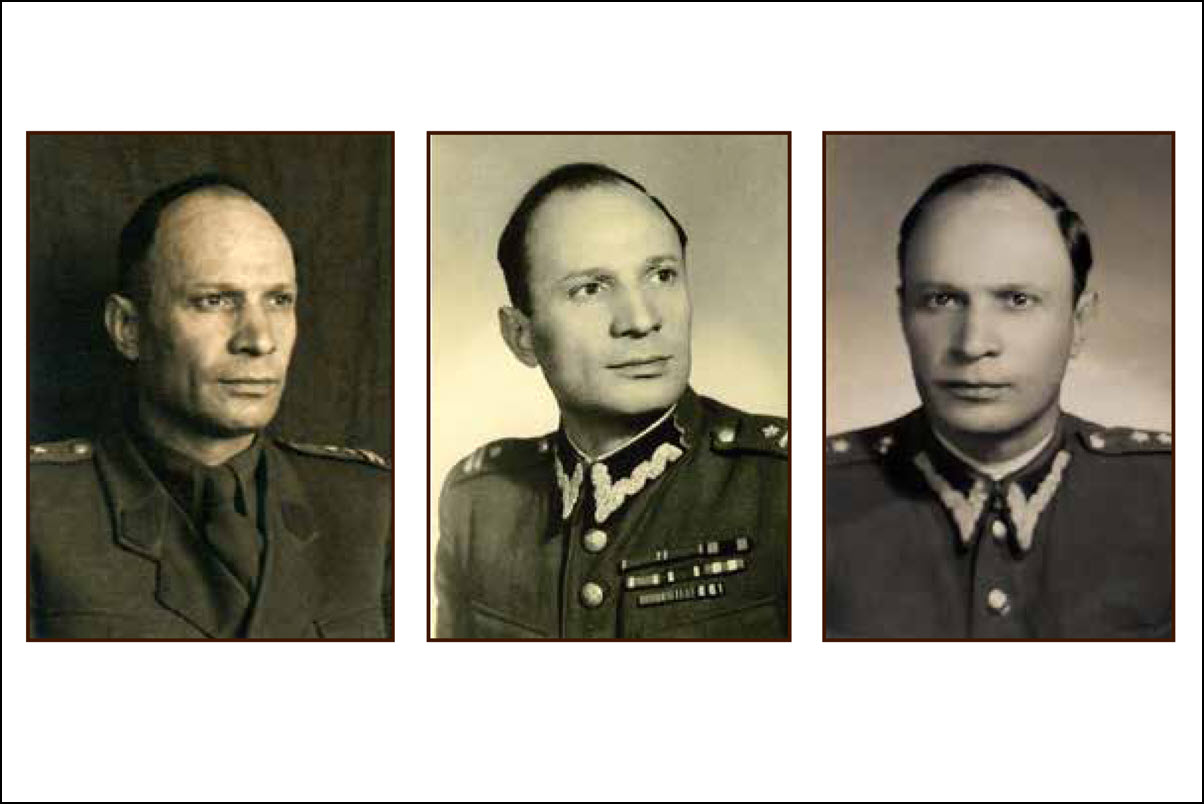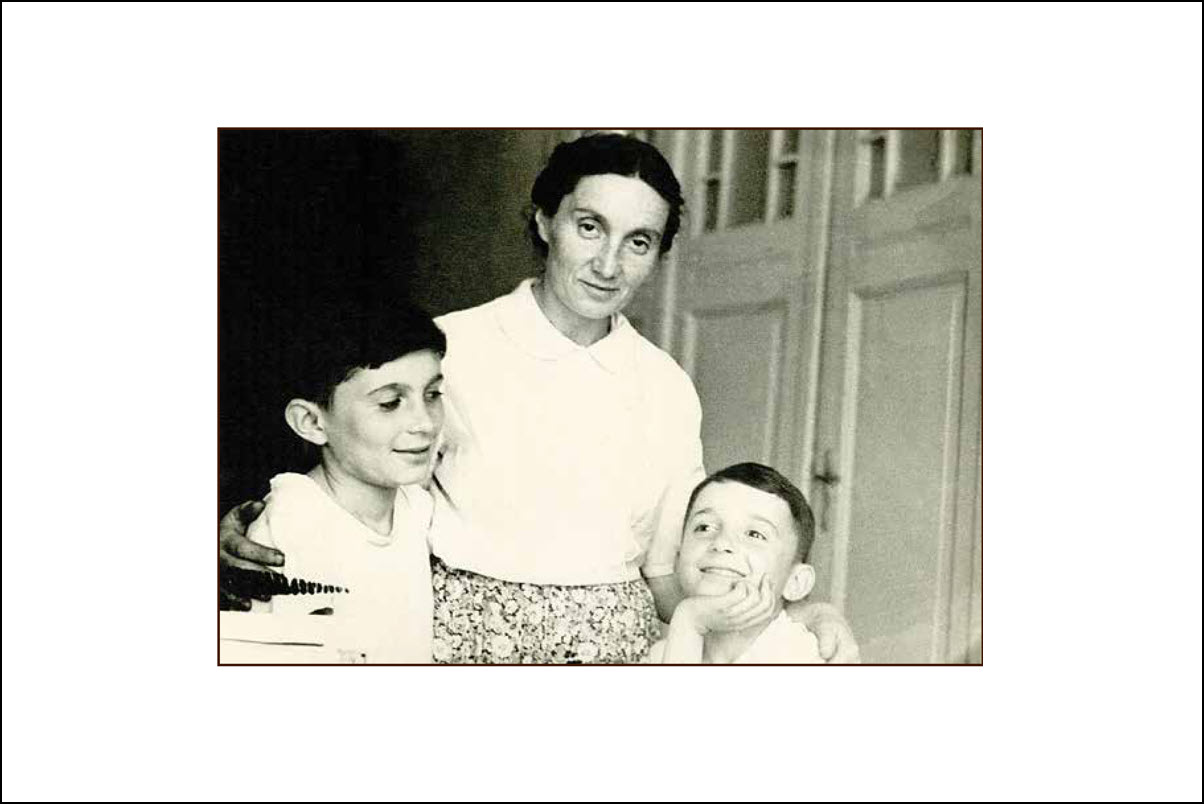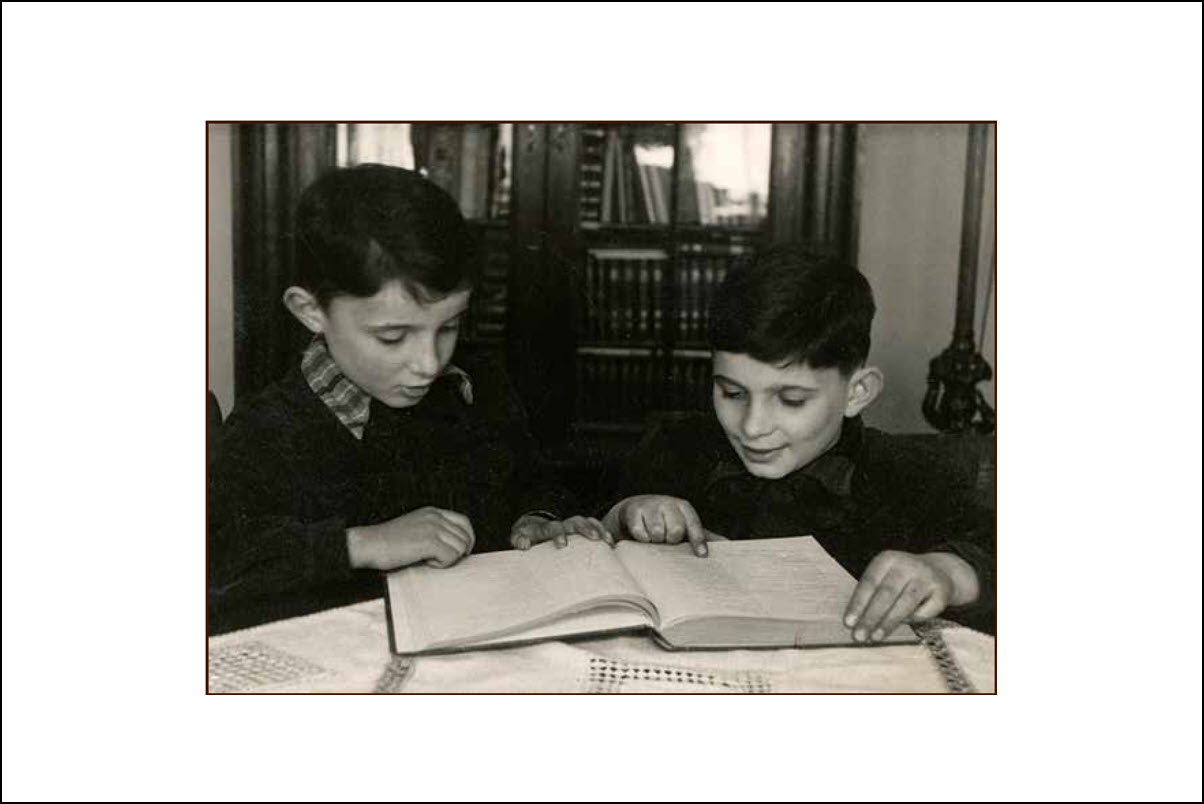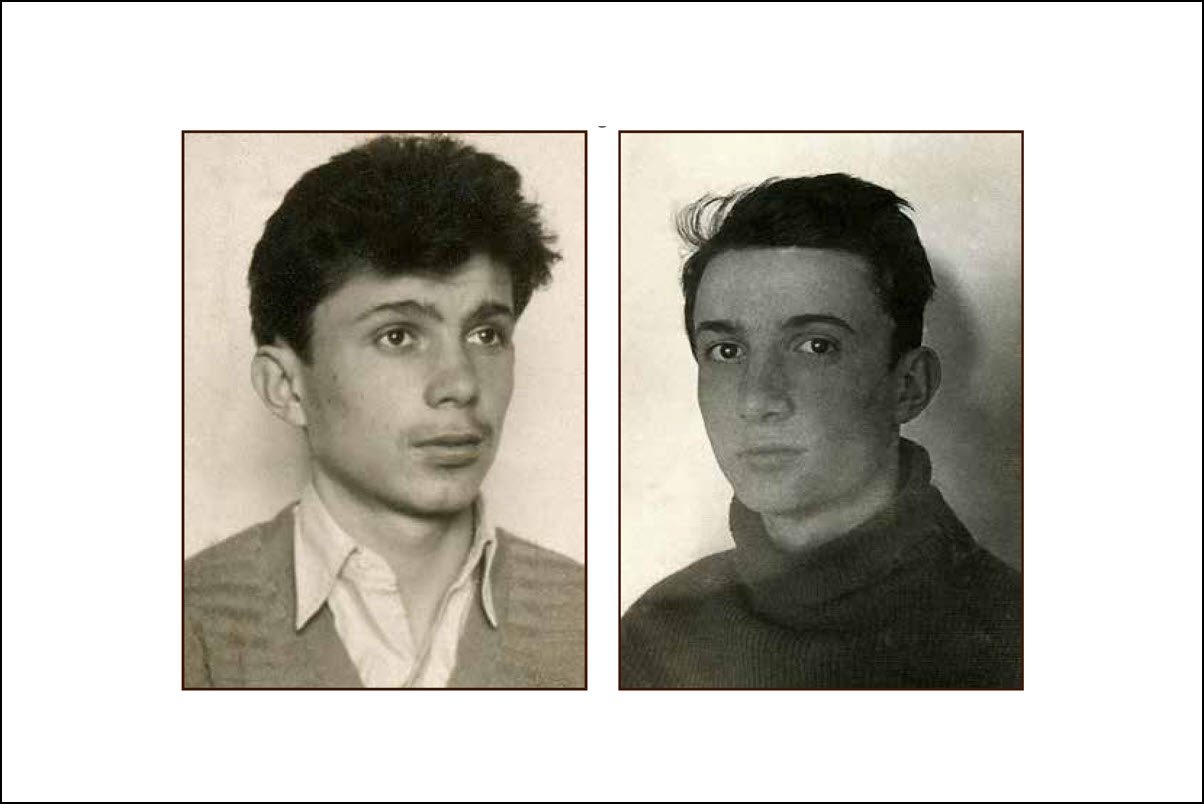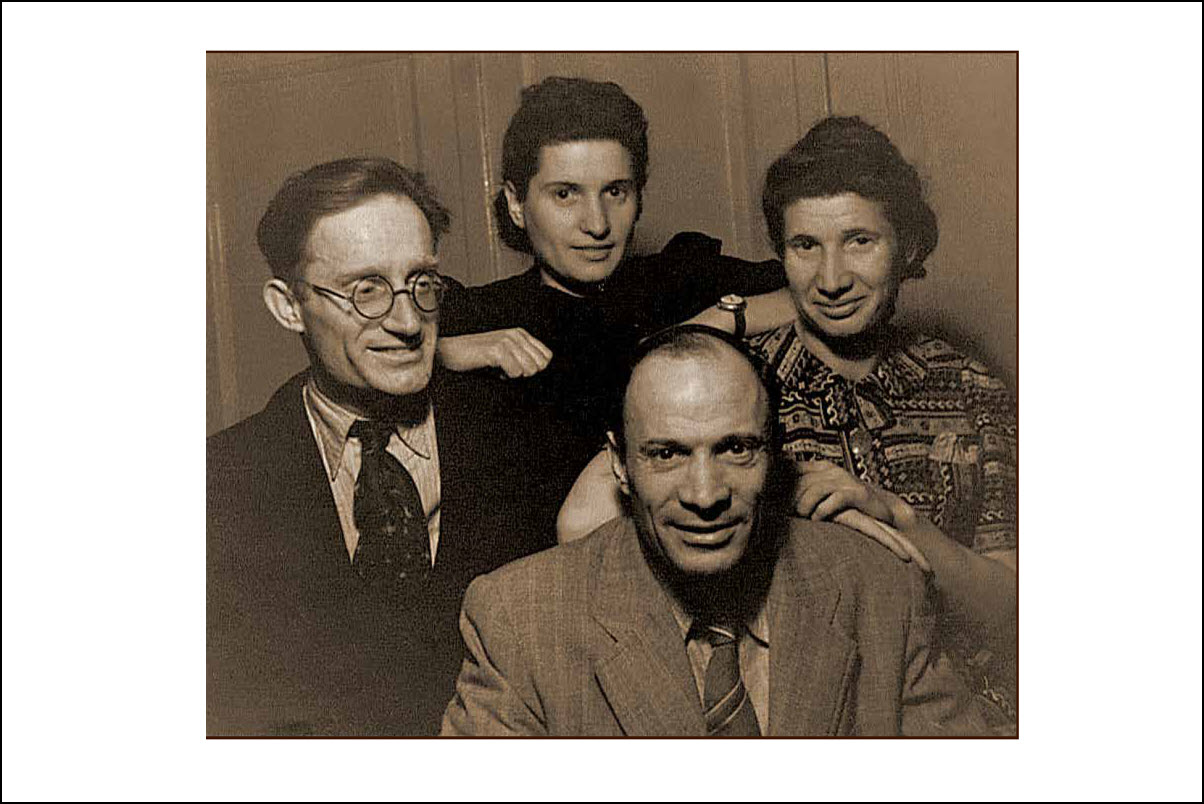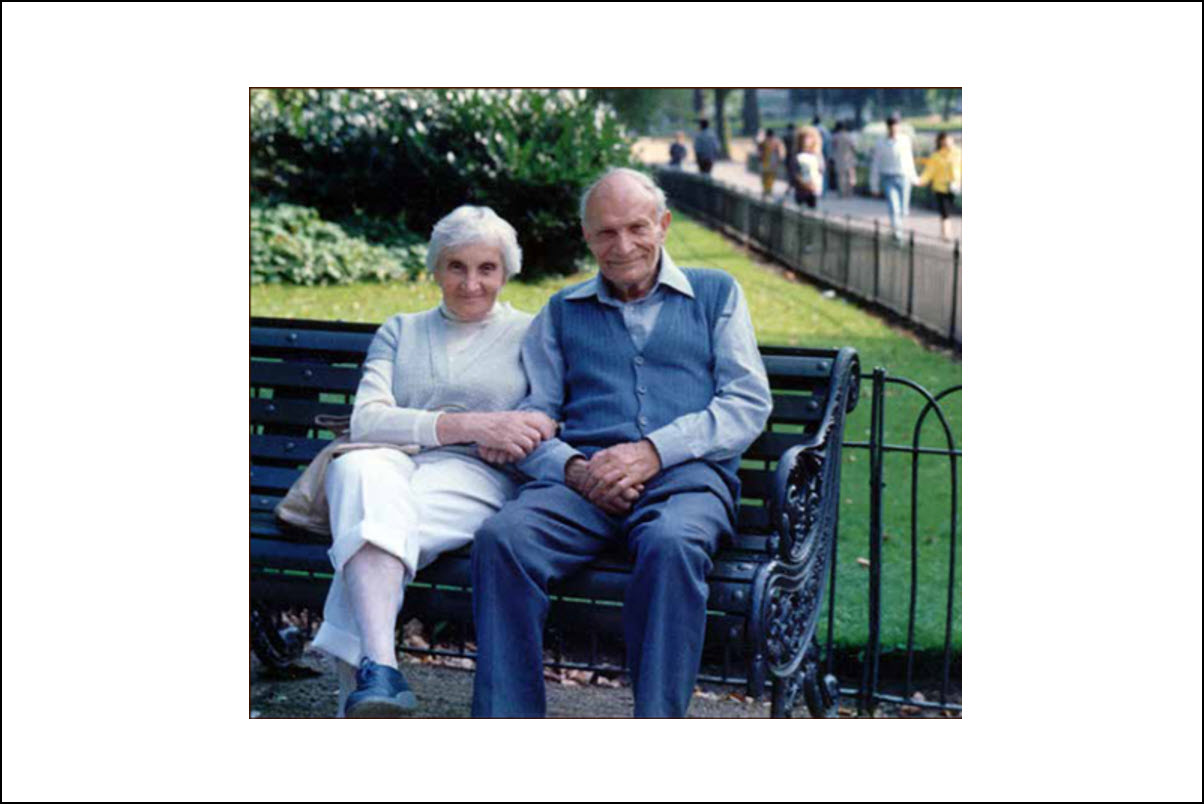-
Home
Home About Network
- History
Nostalgia and Memory The Polish Period I The Russian Period I WWI Interwar Poland 1944 Memorial Commemoration- People
Famous Descendants Families from Mlynov Ancestors By Birthdates- Memories
. The Mohel Family (continued...)

***
Yehuda's Story continued...
As a young man, Yehuda got involved in Zionist youth group activities especially after he arrived in Mlynov. After a few years, he made aliyah to the Land of Israel (called "Mandatory Palestine" at the time), was arrested and jailed in Palestine by the British for being a Communist, was deported back to Poland where he was again jailed for being a Communist. Upon his release he finally returned to Mlynov shortly before WWII. At the German invasion in 1941, he fled east with his wife and three siblings deep into Russia where they survived under extraordinary circumstances.
Not much is known about Yehuda’s parents. His father, Eliezer was from another town, Kopachovka (Kopaczówka), not far north of Lutsk. Yehuda didn't remember his grandparents. A younger brother of his father lived with them for a time in Boremel but went to Argentina in 1925 while the family was living in Mlynov. Another brother and sister, apparently, were living in Minsk for a time.
It is unknown how Eliezer first met his wife Hannah Leah in Boremel, but apparently she was his second wife, after his first marriage did not work out. Eliezer and Hannah Leah married sometime before 1906 when their oldest daughter Batya was born. Later in life, Yehuda recalled that his father was a Olyker Hasid and he would accompany him to the Olyka synagogue in Boremel. There was no formal school in Boremel and he studied for two years with the rabbi’s son, a man named Moshe Zucker who was an “apikoros” and who later ended up teaching at the Jewish Theological Seminary in America.
Yehuda’s mother, Hanna Leah Kaszkiet, was the daughter of a shochet and by marrying her Yehuda’s father, Eliezer, acquired the right (called “a holding”) to be a shochet as well. In Boremel, the competition was fierce between ritual slaughters and Eliezer was persecuted by the other two shochets in town. During the years of dislocation caused by WWI (1914–1921), when Yehuda was between age 6 and 14, the family was nomadic traveling from village to village for short stays of up to six months as Eliezer found work.
It was during this time that Yehuda became a vegetarian through a deeply personal experience. Yehuda grew attached to a hen and chicks that the family was raising. When they began slaughtering them for food, Yehuda was heart-broken and sickened and couldn’t eat the meat. In response, he decided to become a vegetarian. It was unheard of: a shochet’s son had become a vegetarian and the decision created friction in the family. This was not the last time that Yehuda was moved by his deeply moralistic perspective, nor the last time he and his father diverged on religious issues.
***
The Mohels Go to Mlynov
In 1921, following WWI, the Mohel family returned to Boremel only to find all of their belongings and property gone. There was not enough work for three shochets in town and Eliezer had the least seniority. The shochets made an agreement to compensate him if he would leave town. The payment made it possible for the Mohel family to purchase their own flat in Mlynov when an opening for a shochet became available. They arrived in Mlynov in 1924–25 in the autumn when Yehuda was 16 or 17 years old.
Mlynov already had one shochet named R. Pesach Gelman, a son of Itzi Shochet (Gelman). It is not known for certain why a second shochet opening became available, though it might have been related to the tragic and premature death of Anshel Steinberg, the head of the Steinberg family in Mlynov. According to descendants, Anshel Steinberg was a butcher in town and died about this time from an infection after cutting his hand. Perhaps his death created the vacancy that Eliezer Mohel filled.
The first flat the Mohel family occupied was in a communal building. It was somewhat dilapidated but had three rooms. It was the first time the family owned their own place. Yehuda recalls being friendly at this time with another young man in the building named Yona-Reuven, whom Yehuda recalled only by his first name.
He was a relatively well-educated fellow who had studied and was quite clever. I did become quite friendly with him. We talked, we debated, and we also wrote together. Sometimes we wrote letters to each other, even though we lived next door to each other. These were my first social connections in Mlinov.
It seems likely that Yehuda’s friend was Yona Reuven Holtzeker, a grandson of Yankel Holtzeker, one of the five original Goldseker brothers who arrived in town in 1891.
***
Zionist Youth Group Activities
Not long after Yehuda’s arrival in Mlynov, a celebration took place for Shmuel Mandelkern and his wife Malcah (Lamdan) who were leaving soon for the Land of Israel. Yehuda was quite a bit younger than Shmuel Mandelkern who is remembered in the Mlynov Memorial Book as one of the first Zionists in Mlynov and a founding leader of the Zionist Youth Group, HaShomer HaTzair. The celebration of Shmuel’s aliyah made a deep impression on Yehuda. Yehuda recalls that:
There was a very large party before he left. Of course, I was not invited, but nonetheless, together with [my friend] Yona-Reuven, we wrote a farewell poem, and the first letters of each line formed Shmuel’s first name and surname. We sent this poem to him, with a messenger, to the party, but of course, we never received a response.
When recalling this part of his story, Yehuda remembered Shmuel Mandelkern as the second person to leave Mlynov to go to the Land of Israel. Yehuda probably knew that Yitzhak Lamdan, the brother of Shmuel's wife Malcah, had gone to the Land of Israel in 1919. Since Yehuda arrived in Mlynov only in 1924–1925, he apparently didn’t know that the Fishman family made aliyah in 1921.
Photos from Mlynov in the late 1920s show Yehuda and his sisters with the Zionist Youth Group HaShomer Hatzair which gained popularity in Mlynov in the 1920s. Yehuda became the group secretary during this period when Aaron (Berger) Harari was head of the local “nest.” The group apparently met at times in the Mohel home. Looking back on this time, Aaron Harari believes the educational model of the youth group influenced Yehuda’s own father:
Twice a week, after the evening prayers, there was a study group on the books of the Chofetz Chayyim etc., for Jews who didn't know [how to study] a chapter of the Mishnah; the leader of them was Rabbi Eliezer [Mohel], the shochet, z”l, the father of Yehuda, Yaakov, Dvorah and Chaika, who are living in Israel. This study group was modeled on the discussions of the older youth group in the nest of The Young Guard (Hashomer Hatzair). Since Rabbi Eliezer's home housed the leadership committee of the movement, where meetings and preparations took place and occasionally continuing education discussions of the older youth, and he related to us with much friendliness—I have a reason to conclude, that he borrowed the [educational] model from us... ("Local Color in the Synagogue," p. 159)
Yehuda remembers the Zionist youth group as a “movement of rebellion” which considered itself revolutionary. “Clashes arose between the older and younger generation." Yehuda remembers that instead of saying "Hearken, my son, to the discipline of your father," which is a saying in Proverbs, they would say "Do not hearken to the discipline of your father.”
Looking back, Yehuda recalled that none of the youth could see a future for themselves in Poland at the time. Under the influence of the Zionist Youth Group, Yehuda made the decision to make aliyah. He went for prepatory training ("hachsharah") and recalls being the first person in Mlynov to do so. He headed to Horyn’ the small settlement near Stolin. It was 188 km away from Mlynov (2 hr and 41 min driving today). There Yehuda met his future wife, Riva, for the first time; they would meet again and become close later in Palestine. The Zionist group worked in a sawmill and 20 people rented a place and slept together in one room on the floor on matresses. Yehuda worked there for a year before moving to another group in the city of Siemiatycze (today in Eastern Poland) where he worked in a plywood factory.
In the summer of 1929, Yehuda learned that the British had approved his certificate for emigrating to the Land of Israel.
In September 1928, the Hashomer Hatzair nest bid convened a party to bid Yehuda farewell (photo of large group above). In addition to Yehuda (in the white shirt center), his brother Yaakov is also present (standing right with white tie) as well as his two sisters, Batya (next to Yehuda) and Dvorah (third row, on the right with black tie in front of Yaakov).
Note: Other members identified in the farewell photo include: Aaron (Berger) (row 3: 4th person from the left), Moshe Chizik (or Tzizik) (Rosa's future husband) (row 3: third from left), Rachael (Shapovnik) Givol (row 4 standing: 4th from left in dark dress), Aaron's sister, Rosa Berger (standing row 4: 5th from left in white shirt and tie), Saul Halpern (back row: 3rd from right), Yitzhak Gelberg (2nd row: first on left).
***
Yehuda in the Land of Israel (Mandate Palestine)
Yehuda sailed from Trieste, Italy in late October 1929 with a Hashomer Hatzair group. When he first arrived, he saw people riding on very small horses and wondered how these little horses could possibly survive. They turned out to be donkeys an animal he had not seen before in Europe. After an initial period, Yehuda joined a group going to Kibbutz Binyamina, a functioning kibbutz whose members had made aliyah six months to a year earlier. Everyone lived in tents and did difficult work. As a vegetarian, Yehuda had even more meager rations than others.
In addition to the hard work, Yehuda encountered an unfamiliar ideological framework on the kibbutz, one he would resist and which would lead ultimately to his being deported from Palestine. The framework involved the interpretation of Marxist-Leninist thought within Zionism. Back in the Diaspora, Yehuda had been taught that Marxist-Leninism meant solidarity with the international proletariat, not just a focus on the Jewish worker. By contrast, the ideology of the Kibbutz focused on Jewish national identity within a socialist framework and stressed the importance of pure Jewish labor.
Note: This kind of ideological divide was familiar to Jewish socialists back in Russia who had to choose between pure socialism that wanted to annihilate national identities and ethnicities, the Jewish BUND which tried to implement a socialist framework within a Jewish ethnic context and the Labor or Social Zionism which wanted to marry socialism and Jewish nationalism. All of these variations on Marxist-Leninist thought were embraced by subgroups of Polish Jews.
The fear of an Arab attack in the kibbutz also gave Yehuda pause. Why were they at odds with the Arab workers when they should be making common cause with Arab workers. He also began to understand that the Jewish National Fund had acquired land in Palestine through dubious methods that cut the local Arab farmers out of the process. The local farmers had no documentation of their long-standing land rights and they were too far away from the city centers to participate in property transactions or to protect their rights. Yehuda was not alone in becoming convinced that the Hashomer Hatzair kibbutzim in Israel were not fulfilling the principles of Marxist-Leninism that he had been taught. Nor was he the first in Palestine or in the kibbutz to get involved in the Communist Party.
The Palestine Communist Party was founded in 1919 and changed its name to the PKP ("Palestinishe Komunistishe Partei"). The party perceived Zionism to be reactionary, not a liberation movement. Yehuda joined the Party Committee in Kibbutz Binyamina and participated in long discussions and arguments with kibbutz members particularly about the organizing of Arab workers. Eventually the kibbutz implemented a ideological purity test that Yehuda failed.
***
Expelled from Kibbutz / Deported to Poland
Expelled from the kibbutz, Yehuda headed to Haifa. There he got involved in the PKP, which was operating as an underground organization with clandestine activities. The British police for their part were trying to identity and arrest its members. Seeking to understand Arab laborers better, Yehuda got a position in Public Works and began working alongside Arab workers. During this period, Yehuda began to get close to his future wife Riva, who had made aliyah in 1932 and was a friend of a friend.
Eventually, Yehuda was caught by the British. After being jailed twice, he was deported back to Poland, his "home" country. He was arrested again in Poland for Communist activities and sentenced to between eight and ten years in prison. Riva was also deported from Palestine to Warsaw for being a Communist during the same period. With the help of her brothers back in Poland, she began an effort to free Yehuda. In August 1939, after serving 4 years of his sentence,Yehuda was released from prison due to a general amnesty that was declared two weeks before the outbreak of WWII.
***
Back to Mlynov
Yehuda and Riva returned to his hometown, Mlynov. Riva was shocked by how simple their home was and Yehuda's sister later teased her about how elegantly she was dressed. During this time, Riva got pregnant with their eldest son, Vitek, though they were not married. Naturally, Yehuda's father, Eliezer, the shochet and mohel, began exerting pressure on them to marry. Yehuda remembers the conversation going something like this:
[Eliezer, Yehuda's father:] "Look, I know you are a communist and anti-Orthodox, but I want you to have a wedding. You are a communist, you have your perspective and your principles, so let us try for a compromise. We will do it in a quiet way so that no one will know. The rebbe will come, two witnesses will come, and we will write the ketuba (marriage license), we will sign, we will make a chupah (bridal canopy) - and that's it. We will do it quietly so no one will know."
[Yehuda]: "So why do you need it? If people do not know, why do you need it?"
[Eliezer]: "Because when I come to the synagogue people talk about it, that my son is living with a woman without a chupah and without wedding vows, and the children will be bastards, and it is not right, that the son of the town's shochet... (p. 201).
Riva would have acquiesced but Yehuda was stubborn and refused.
***
Relieved When the Russians Arrive: 1939
Yehuda and Riva went on a "honeymoon" in August 1939 to get away from family pressures but cut their time short in light of the pending War. They were extremely relieved when the Soviet tanks arrived nearby and Mlynov fell under Soviet and not German control. Their socialist dream had come true. They rented a small flat in Mlynov. Yehuda was elected head of the local council because of his past communist connections. His papers as a Communist official would later help him and his family survive in Siberia.
When their son Vitek was born in 1940, Yehuda's father Eliezer, the shochet and mohel, began to exert pressure on Yehuda to have his son circumcised. Yehuda's sister Batya tried to convince her brother to comply. But Yehuda refused and decided to leave the city to escape the pressures of his family. Later in life, Riva recalled that when Yehuda was no longer a communist he regretted his decision (pp. 214–15).
***
Then Germans Attack: June 1942
When the Germans attacked Russian-held Ukraine on June 22, 1942, Yehuda and Riva were in the nearby town of Demydivka visiting Yehuda's aunt. His sister Bracha (Bouzke'leh) was also there with them. They managed to get a cart and a few horses. They pleaded with Bracha to join them but she refused and ran back to Mlynov to be with her parents. She would perish with them.
Yehuda and Riva, with young son, Vitek, joined a huge convoy of fleeing Ukraianian soldiers, Russians, and Jews all heading towards Dubno. Confusion reigned on the road with masses of people walking east. In Dubno they bumped into Yehuda's brother, Yaakov, and his wife Batya (née Katz), and his sisters, Chaika and Dvorah, who also fled Mlynov. Their parents remained in Mlynov too old to flee with the two younger daughters Bracha and Yenteleh. The siblings later learned that the Germans arrived in Dubno an hour or two after they fled further east.
Along the way they had to dive to the ground as bombs dropped nearby. After seven days they eventually made it to Zhytomyr, which was still in Russian-held Ukraine. There they managed to get on a train to Kiev further east. They were in Kiev on July 3rd, 1941 and heard over loudspeakers Stalin deliver his famous first speech about the War. In Kiev, they managed to get on a boat on the Dnieper.
***
Fleeing East
A long journey ensued by boat and train towards Astrakhan and Karalat on the Caspian Sea, a total of nearly 3,000 km. Yehuda tried his hand at fishing but there was no real work. They eventually left on a ship to Atyrau (then called Guryev) a coastal city in Kazakhstan today. After a short stay there, the family headed to Siberia where Riva's sister was living (now northeast Kazakstan). They arrived in Akmolinsk (now the capital Astana) and from there they continued further northeast to Turgaistroi. The total distance of the escape route was about 6,200 km over a period of seven or eight months.
Yehuda was soon taken into the Work Army ("Trud Armia") which were units of men and women who were recruited to help at the front. He was then selected to join the Russian Army. After an intensive training for commanders, Yehuda's group was sent to the front. Yehuda was left behind in the train station and there was always uncertainty in the family whether he did so deliberately. In any case, he was arrested and accused of being a deserter.
What saved him ultimately were the papers from Mlynov showing he had been head of the Mlynov Council when the Soviets occupied the area. They finally released him and sent him back to the Workers Army (Trud Armia) that was in Akmolinsk. Riva traveled to see him with their newborn son, Dani, who was born March 15, 1943.
Yehuda worked for a time in Akmolinsk before enlisting in the newly forming Polish Communist Units (Armia Ludowa). There they changed his Jewish sounding name from Judka Mohel to the Polish, Wacław Tracz. At the time, Yehuda firmly believed that after the War there would be no distinction between Jews and Poles, and everyone would be Polish. For the rest of the War, Yehuda was gone for long periods of time at the front and returned to his family only briefly with frost bitten hands.
***
After the War
On May 8 1945, the Germans surrendered and the war ended. Riva and the children left Siberia and eventually made their way to Wroclaw, Poland which had recently been liberated from German occupation. Yehuda continued serving in the army.
Eventually, Yehuda and Riva went back to Mlynov. Yehuda had already learned the fate of his parents and two younger sisters. Earlier in 1944, his brother Yaakov received an account from another Mlynov survivor named Sarah Neiter. A reconstruction of that letter by Yehuda's brother Yaakov appears in the Mlynov Memorial book. The Nazis entered Mlynov a few days after Yehuda and Riva fled. The remaining members of the family hid in the cellar. The Germans sent in hungry dogs which found them and the whole family was shot.
Settling into their lives in Wroclaw, Poland, Riva established and ran a kindergarten and Yehuda served with the army as the person responsible for regional security on behalf of the Party. It took quite a long time for Yehuda and Riva to learn of Stalin's crimes and become disenchanted with the party. Yehuda was discharged from the army in 1953, part of the the first wave of explusions of those with Jewish origins. Yehuda finally turned in his party card in 1956 when Stalin's crimes became known. Riva at the time still wanted to hold onto hers. The realization of what the Party had become under Stalin was difficult to believe and acknowledge. They had invested most of their adult lives in the Communist vision.
After 1956 it became possible to travel to Israel. The family applied and was refused permission to leave Poland on multiple occassions. Finally, at the beginning of May 1961, their request was approved. On May 31, 1961, they took a train to Vienna, got on a plane two days later, and on June 3, 1961, they landed at Lod Airport.
Return to the beginning of the Mohel Story or download the book-length account of Yehuda and Riva's lives .
***
***
Compiled by Howard I. Schwartz
Updated: July 2024
Copyright © 2021 Howard I. Schwartz, PhD
Webpage Design by Howard I. Schwartz
Want to search for more information: JewishGen Home Page
Want to look at other Town pages: KehilaLinks Home Page
This page is hosted at no cost to the public by JewishGen, Inc., a non-profit corporation. If it has been useful to you, or if you are moved by the effort to preserve the memory of our lost communities, your JewishGen-erosity would be deeply appreciated.
- History
